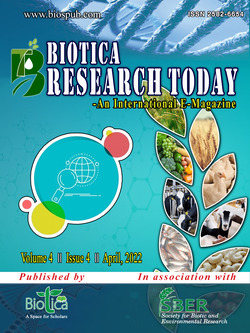
Impact of Soil pH on Plant Nutrient Availability and Biological Processes
Siyaram Meena*
Division of Soil Science and Agricultural Chemistry, ICAR-Indian Agricultural Research Institute, New Delhi, Delhi (110 012), India
Ritambhara
Division of Soil Science and Agricultural Chemistry, ICAR-Indian Agricultural Research Institute, New Delhi, Delhi (110 012), India
DOI: NIL
Keywords: Biological activities, Neutral pH, Production systems, Soil management
Abstract
Soil pH, a highly variable chemical property of the soil is considered major factor governing rest of the soil physical, chemical and biological properties and biological activities. So, this article considers the impact of soil pH on the nutrient availability for plants in the soil and biological processes occurring in the soil. Nutrients like aluminium, iron, manganese are available more at acidic pH and lesser at basic pH while, calcium, magnesium, molybdenum have higher availability at higher pH and lower at lower pH. Near neutral pH (6.5-7.5) has the maximum amount of nutrients available and favours most biological processes along with better root growth of plants. This article concludes that pH being variable and highly important factor, attains prime importance in soil management for production systems and slightly acidic soil pH is favoured for most production systems.
Downloads
not found
Reference
Jensen, T.L., 2010. Soil pH and the availability of plant nutrients. Plant Nutrition Today, Norcross, Georgia, USA. Fall 2010, No. 2.
Mckenzie, R.H. 2003. Soil and Plant Nutrients. Agriculture, Food and Rural Development, pp. 1-4.
Neina, D., 2019. The role of soil pH in plant nutrition and soil remediation. Applied and Environmental Soil Science 5794869, 1-9. DOI: https://doi.org/10.1155/2019/5794869.
Pietri, J.A., Brookes, P.C., 2008. Nitrogen mineralisation along a pH gradient of a silty loam UK soil. Soil Biology and Biochemistry 40(3), 797-802.
